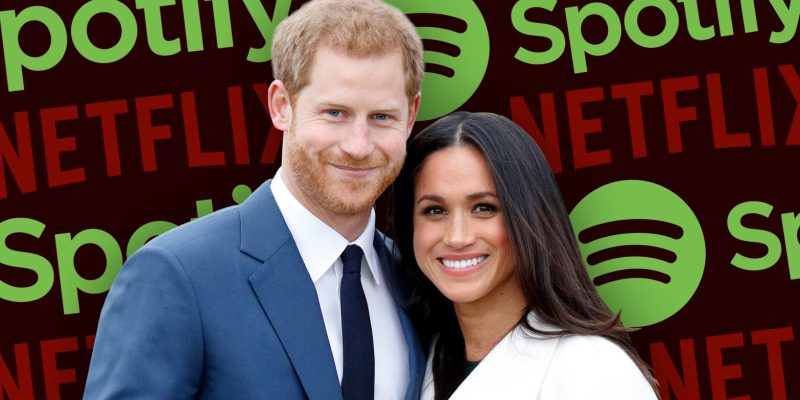Say what you like about Harry and Meghan, but there’s no denying they generate immense levels of press coverage. There were 210,922 articles written about Markle in 2020 alone, according to digital PR agency Banc. With the frenzy reaching fever pitch following the release of Harry’s novel ‘Spare’ in recent weeks, the couple have captured the attention of the world and garnered a level of media coverage most brands can only dream of.
Although you most likely don’t have a royal amongst your staff, there is still a lot businesses learn from Harry and Meghan’s headline domination. Here are some key lessons to take away from the couple’s recent PR success.
1. Vulnerability generates headlines
If there’s one thing the media loves, it’s vulnerability. From their Oprah interview to Harry’s latest tell-all book Harry and Meghan aren’t afraid to get vulnerable and give the public a behind-the-scenes glimpse of their lives.
Speaking openly and honestly about an issue can be a powerful PR opportunity. When done well, it breaks the status quo and makes people sit up and listen to what you have to say.
Just like any other PR strategy, however, it’s important to carefully consider the best way to communicate your message. Vulnerability for its own sake can be taken the wrong way and seen as oversharing (did Harry really need to go into so much detail about his uses for Elizabeth Arden cream?), so considering your why before speaking is essential to achieving coverage that will work in your favour.
2. Journalists love a leak
The reason journalists love a leak is the same reason why businesses hate it – it’s unexpected, causes a scene, and usually exposes a story you aren’t ready for the world to see. Case in point: the media storm that ensued after Harry’s book leaked almost a week before its official release date, leaving his team scrambling as they tried to deal with leaked passages, many of which were quickly turned into internet memes.
A leak can have serious reputational consequences for your business, as it gives the media a chance to take information out of context and create a narrative over which you have little control. By the time you rally the troops and formulate a response, the damage may already be done.
While the nature of leaks means you can’t be certain if or when they will occur, the best defence is a good offence. Formulating a policy on how to respond to a leak will provide the framework for how to navigate this sticky situation if it does ever occur.
3. Cross-media coverage is essential
Gone are the days when a single TV interview or front-page story was enough to generate great PR. With a news cycle that sheds its skin every few hours, brands need to consider all forms of media in their PR strategy in order to achieve impactful coverage. Over the past three years, we’ve seen Harry and Meghan tell their story via podcasts, TV shows, news interviews, and now in a book.
From TV and radio to podcasts, social media content and written articles, many people now get their news across multiple different platforms. Making your story accessible to audiences across various platforms will reach more people, garner more interest, and ultimately allow you to tell your story exactly the way you want.
4. Think twice before you jump on a PR bandwagon
Hitching a ride on the coattails of a PR storm is often considered an easy marketing tactic. When done well, it can be a great way to cut through the noise and get eyes on your brand. Without enough foresight, however, it can leave you in a crisis of your own.
Australian mattress and furniture brand Koala fell victim to this PR blunder with the release of Prince Harry’s recent book. In one passage, Harry expressed shame over shopping at furniture brand Ikea in comparison to his royal family’s more elegant decor. This prompted Koala to post a 15% discount code for customers to use on their Instagram, implying that customers should replace any ‘embarrassing’ Ikea furniture they may own.
One look at the comments on this post shows that most customers felt the brand had missed the mark. Many felt that the post was making light of a public figure who had been vulnerable with his struggles, while others simply thought that taking a swipe at Ikea inadvertently insulted those who also struggled to afford more expensive decor.
No matter which way you look at it, Koala’s decision to jump on the back of Harry and Meghan’s PR train resulted in a PR fail of their own. Lesson learned: don’t rush to ride a wave without first considering the optics.
5. Relatable stories always win
Few people can relate to the trials and tribulations of a Duke and Duchess, but most of us know what it’s like to grapple with mental health issues or navigate a strained relationship with someone we love.
It’s these relatable stories that ultimately make for interesting, newsworthy headlines. Taking the chance to share honestly and openly can help your audience better connect with your message.
At the same time, it’s critical that you avoid coming across as bitter or hard done by. It’s all too easy to cross the line between genuine relatability and trying too hard to be ‘one of the people’. If you can learn to strike that balance, however, the rewards can be huge.

